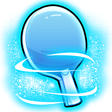Implementing training into matches
Training
Rajat Mallick Asked 2 years ago
Dear Sir,
I am a club level amateur player playing more than 20 hours a week for past 2 years and have participated in several tournaments. I have always preferred training practice more than practice matches/game. During training, I have emphasized a lot in improving technique and focused in developing the muscle memory. However when I play matches, even the practice matches, all the development suddenly vanishes. For example, while practicing forehand top, I feel that I use an appropriate relaxed grip but during matched the grip automatically tightens and I feel like I can do nothing to rectify it. Same issue is there for several other techniques such as footwork which suddenly gets reduced during matches as compared to training.
Is there any specific advice for better implementing the training learnings into matches?
Furthermore, I play with ox long pimple on my backhand but I feel I have very good twiddling ability. During practice in long hours of multi-ball sessions I emphasize on inverted rubber on both forehand and backhand using inverted rubber. However during matches I tend to favor long pimples rubber. Though I have good control using long pimples but my game becomes reactive to that of my opponent's rather than being proactive setting my own tone in the game.
Thank You
 Alois Rosario Answered 2 years ago
Alois Rosario Answered 2 years ago
Hi Rajat,
Yes, there is some specific advice for better implementing the training learnings into matches. First, remember that practice and match situations are fundamentally different. In practice, you are allowed to think and experiment without pressure, while in matches you need to act in a very short amount of time (as you probably know, matches are often won and lost in split seconds).
Therefore in training try to put yourself into as many decision making situations as possible. In training we tend to play a lot without having to make a decision. That is we know where the ball is going all the time. Try to set up situations where you don't know where the ball is going more often.
Another very important point is that you should not think about specific techniques when in a match, but rather you should focus on your opponents' patterns and tendencies, while simultaneously recognizing those of your own. In this way, you can anticipate what kind of shots your opponent will make and play a suitable response as quickly as possible. This will also help with control and confidence as you will be prepared for each shot when it comes.
Finally, it is important to remember that practice is essential for improving your table tennis skills in a match situation not just isolated skills. Make sure to keep challenging yourself and exploring new things in practice. This will help you find the best possible strategies to use during matches, as well as to develop your match play.
Recommended Video
#40 - Full on Third Ball
This week we take your third ball to a whole new level. We set match drills which get you to vary the spin, speed and placement of your third ball. By varying these factors your third ball attack will be a real weapon.
Watch NowNo comments yet!
Become a free member to post a comment about this question.